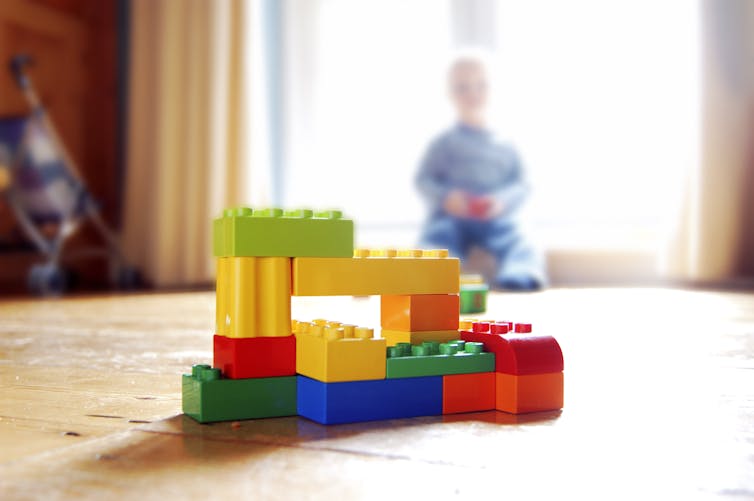
Experts in autocracies have pointed out that it is, unfortunately, easy to slip into normalizing the tyrant, hence it is important to hang on to outrage. These incidents which seem to call for the efforts of the Greek Furies (Erinyes) to come and deal with them will, I hope, help with that. As a reminder, though no one really knows how many there were supposed to be, the three names we have are Alecto, Megaera, and Tisiphone. These roughly translate as “unceasing,” “grudging,” and “vengeful destruction.”
I like to try to find articles which contain information that could help someone – help us change our behavior perhaps, or just help us to have a better attitude. But some times an article just jumps up, smacks me in the face, and says, “read me and barf,” For instance, the congenital syphilis one. And now this one. Don’t say you weren’t warned to get a barf bag.
================================================================
Victims of domestic abuse find no haven in family courts

The Image Bank/Getty Images
Joan Meier, George Washington University
The #MeToo movement may have shifted the balance of credibility on sexual abuse and harassment at work more toward victims and away from alleged perpetrators. But the same cannot be said regarding men’s violence and abuse at home: In fact, women’s reports of domestic violence are still widely rejected, especially in one critical setting: the family court.
When women, children or both report abuse by a father in a case concerning child custody or visitation, courts often refuse to believe them. Judges even sometimes “shoot the messenger” by removing custody from the mother and awarding it to the allegedly abusive father.
For instance, courts reject 81% of mothers’ allegations of child sexual abuse, 79% of their allegations of child physical abuse, and 57% of their allegations of partner abuse. Overall, 28% of mothers alleging a father is abusive lose custody to that father; this percentage rises to 50% when an allegedly abusive father accuses the mother of “parental alienation” (more on this below).
Family courts’ hostility – both in the U.S. and abroad – toward claims of paternal or spousal abuse has been widely reported by scholars and litigants. But it’s only recently that empirical data has been produced that validates the growing chorus of distress.

David Potter/Construction Photography/Avalon/Getty Images
‘Dynamic of resistance’
I am a scholar of domestic violence and the law. Working with four other researchers, I conducted a federally funded study that reviewed all electronically published family court cases between parents in the U.S. between 2005 and 2014 related to custody or visitation that involved abuse or alienation claims.
Among the results from this analysis of thousands of cases: Courts rejected women’s claims of partner violence and child abuse by men, on average, roughly two-thirds of the time. They rejected mothers’ claims of child abuse by fathers approximately 80% of the time. And they reversed custody from mothers alleging abuse to the allegedly abusive fathers at rates ranging from 22% – for partner violence claims – to 56% when mothers alleged both sexual and physical child abuse.
The same dynamic of resistance to mothers’ abuse claims against fathers in custody cases has been documented across the globe.
Courts’ skepticism in these cases is due to many factors, but a key driving force is the concept of “parental alienation” or “parental alienation syndrome,” which was invented in the 1980s by a psychiatrist named Richard Gardner.
Gardner claimed that the vast majority of child sexual abuse claims in custody court were false. In addition to attributing false allegations to mothers’ vengeance against their ex-husbands, he theorized that mentally unbalanced mothers also convince themselves (falsely) that their children are being abused by their fathers.
Gardner’s “parental alienation syndrome” (“PAS”) was eventually discredited by courts and scholars. But the notion of parental alienation as the toxic influence of a primary parent that turns children against the other parent continues to profoundly influence family courts’ responses to women’s claims of abuse, especially child sexual abuse.
Thus, our study found, consistent with Gardner and parental alienation theory, that when a father accused of sexual abuse responded by accusing the mother of parental alienation, 50 out of 51 courts sided with the father and refused to believe the sexual abuse claim.
Our study also found that when allegedly abusive fathers respond to any type of abuse allegations by accusing mothers of alienation, mothers are roughly twice as likely to be disbelieved, and their rate of custody losses doubles to roughly 50%.
While Gardner’s syndrome theory has been repudiated as unscientific, parental alienation writ large continues to be treated by many family court professionals and judges as quasi-scientific, even though there is no credible scientific research to support the theory.
More specifically, there is no empirical research supporting the idea that, when one parent bad-mouths the other or takes other steps to undermine the other’s relationship with a child, the child actually turns against the “targeted” parent. In fact, research has found the opposite: that bad-mouthing can actually backfire, by turning the child against the bad-mouthing parent.
Nor is there any objective way to distinguish a child’s legitimate and justified estrangement due to the avoided parent’s own behaviors from an estrangement unjustifiably fueled by the other parent.
In short, there is no scientific or objective means of applying the alienation label. Rather, it is applied whenever an evaluator or court subjectively chooses not to believe a mother and/or a child’s abuse claims and chooses to instead believe the mother is malicious or sick and the child is not in reality.
Who gets protected?
Most people presume that family courts are protective of children and responsive to abuse concerns. This assumption persists in part because society underestimates abusers’ manipulations of the legal system, courts’ inclination to prioritize fathers’ rights and access above most other concerns, and the backlash against women who are seen as not wanting to share the kids.
The belief that it is fathers, not mothers, who can’t get a fair shake in custody cases is further fueled by fathers’ rights groups’ claims that courts are biased against fathers.
This common assertion helps fathers whose parenting may be poor or destructive cast themselves as victims while casting mothers who raise such concerns as perpetrators. And it encourages courts to view their prioritization of fathers’ rights as progressive and egalitarian.
Indeed, the scholarly literature surrounding custody court decision-making routinely emphasizes the importance of fathers and shared parenting. These articles often reiterate that fathering is critically important to children, without much attention to the specifics of individual parents’ past behaviors and impacts on their children. This pro-father sentiment translates into treating mothers as personae non gratae when they seek to restrict paternal access or claim a father is dangerous or harmful.
In fact, while family courts’ special valuation of fathering is difficult to prove empirically, our study did find that protective fathers are not penalized for accusing the mother of abuse, as are mothers who accuse fathers of abuse. The study also found that parental alienation claims benefit fathers more than mothers.
Deadly consequences
The harm to both children and their protective mothers from these family court practices is significant.
One study of what are called “turned-around” cases involved allegations of child abuse that were at first viewed as false and later judged to be valid. This study found that a majority of children in these cases were forced to live with their abusive fathers, that the vast majority reported new incidents of abuse and that children’s mental and physical health significantly deteriorated before a second court finally sent them back to their safe mothers.
Worst of all, family courts’ refusals to take seriously one parent’s claims that the other parent is dangerous have enabled over 100 child homicides.
Perhaps it is time for #MeTooHome.![]()
Joan Meier, Professor of Law, George Washington University
This article is republished from The Conversation under a Creative Commons license. Read the original article.
================================================================
Alecto, Megaera, and Tisiphone, of all the places in the world where children’s well being should be the number one priority, family court ought to be at the top of the list. I don’t expect people who work in family court to be oerfect, but I do expect them to have learned more than Freud when he deccided that thh those women patiens claiming their fathers raped them must be making it up, because people – men – prominent persons in the community – don’t sdo such things. Well, surprise, surprise. And now Republicans want to take us backward instead of forward, and essentially declare open season on women and children 24/7/365*.
I couldn’t help thinking of Andrew Vachss as I read this. He has been pedophiles’ worst nightmare for decades. We could certainly use more like him – a lot more like him. Stuff like this goes far to explain why he now looks about a hundred and eighty (he’s actually 79. And, when we lose him, who will we have?)
The Furies and I will be back.
*366 in Leap Years. ![]()
5 Responses to “Everyday Erinyes #295”
Sorry, the comment form is closed at this time.

Patriarchy lives on here, too…thanks Joanne. The myths men have created have a life of their own unless it is proven to lead towards the deaths of others…and then sadly too often too late.
“unless it is proven to lead towards the deaths of others”
Under patriarchy, women and children are “others” all right – they are so “other” that their deathc don’t count.
too true
Sickening! Women are still second-class citizens in the USA. Until we overthrow the sexist, racist elite that is in charge, we will continue to be stepped on.
Sadly, this abject systemic paternalism/sexism/misogyny when dealing with abusive fathers isn’t restricted to American family courts nor is it restricted to courts. I have no knowledge of research done in other countries on this topic other than mentioned in the article itself, but the deadly bias of parental alienation has pervaded most family courts around the world.
For those in the medical profession, such as doctors, refresher courses are mandatory to prevent mistakes from being made because knowledge is out of date. I see no reason why judges and barristers aren’t made to do the same for law specific to their courts, but also other information they rely on in their judgements, like the debunking of Gardner’s “PAS”. It might have saved some of the lives of those 100 kids killed at the hands of an abusive father with whom they were forced to live with after their mother lost custody when she dare speak out against that father. Those poor mothers will probably never get over the loss of their child, feeling guilty because she was no longer able to protect it.
But as I said, the problem of not believing the mother when she points to the father as her abuser and/or her kids. Recent reports here in Oz have shown that women are not believed by the police either when she calls out her abuse or/and that of her children. Police officers have been known to deliver a woman (and her kids) back to the abusive partner/father, sometimes with deadly consequences.